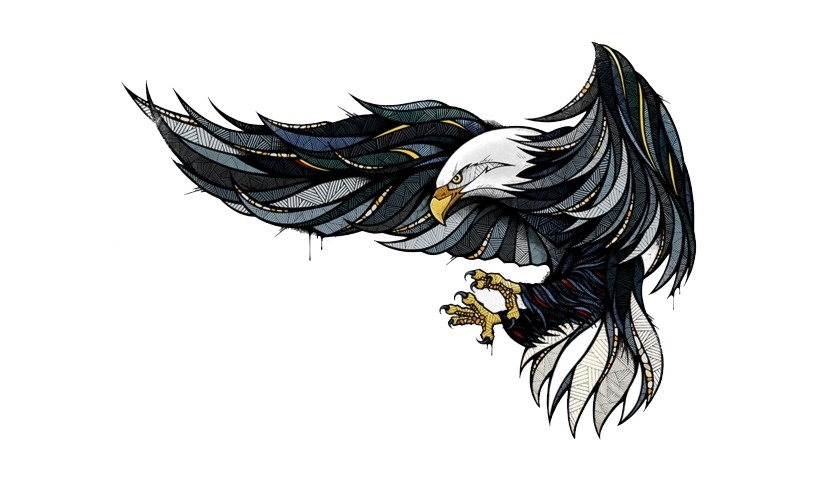01. “Wolves”
02. “Survival of the Yellowstone Wolves”
03. “Unique Wildlife of India”
04. “Endangered Wildlife of India”
05. “Yellowstone Wolves Part 1”
06. “Yellowstone Wolves Part 2”
07. “Eagles”
08. “India's Hunters of the Sky”
09. “Bear Cubs”
10. “Animals at Play”
11. “Courting, Nesting & Raising Young”
12. “Baby Animals”
13. “Birds of Prey”
14. “Exotic Birds of the World”
15. “Black Bears of the Rockies”
16. “The Grizzly Bear”
17. “Wildlife Biologists”
18. “Prediction Techniques”
19. “Rattlesnakes”
20. “The Snakes of Thailand”
21. “The Alligator & American Crocodile”
22. “Komodo Dragons”
23. “Cobra - The King of Snakes”
24. “Black Bears - Trouble Bruin”
25. “Wolves at Our Door”
26. “Ten Deadliest Snakes in the World”
27. “Search for the Great Sharks”
28. “The Ultimate Guide - Birds of Prey”
29. “The Ultimate Guide - Great Apes”
30. “Orca - Killers I Have Known”
31. “The Ultimate Guide - Spiders”
32. “Science of Shark Attacks”
33. “Meet the Pandas”
34. “Whales - An Unforgettable Journey”
35. “March of the Penguins”
36. “Tiger - Spy In The Jungle Part 1”
37. “Tiger - Spy In The Jungle Part 2”
38. “Tiger - Spy In The Jungle Part 3”
01. “The Great Barrier Reef”
02. “Antarctica - An Adventure of a Different Nature”
03. “Africa - The Serengeti”
04. “Alaska - Spirit of the Wild”
05. “Grand Canyon - The Hidden Secret”
06. “Mystery of the Maya”
07. “Zion Canyon - Treasure of the Gods”
08. “Mysteries of Egypt”
09. “Lost Worlds - Life in the Balance”
10. “Kingdom of Cambodia - History of Angkor Wat”
01. “Biography of a Corpse”
02. “Forensic Frontiers”
03. “Dracula Unearthed - Man or Myth?”
04. “Plague Hunters”
05. “Savage Evidence”
06. “Invisible People”
07. “Body Jars”
08. “Brain Diggers”
09. “Roopkund - The Skeleton Lake”
01. “Steve's Story”
Interviews with Steve, Terri, his father Bob, his mother Lyn, and some of his friends, as they reveal the man behind the adventure series.
02. “Big Croc Diaries”
Steve and Terri show off their favorite crocodiles at Australia Zoo. The action includes shots of the biggest crocodiles eating pigs whole. High-speed film techniques highlight the power of the mighty creatures.
03. “Wildest Home Videos”
Steve and Terri show us their home video collection, most of which document their conservation work.
04. “Steve and the Dragon”
Steve ventures to the remote part of the Indonesian islands to observe the largest lizard in the world, the Komodo dragon. Animals are Komodo dragon, gecko, golden tree snake, monkey, water buffalo, Russell's viper, and orange-footed scrubfowl.
05. “Australia's Wild Frontier”
Steve travels to Queensland's Cape York, which is considered one of the last wild frontiers of Australia.
06. “Journey to the Red Center”
Steve and Terri journey to the Red Desert at the heart of Australia. They examine venomous snakes, lizards and endangered mammals as they make their way to the world famous Uluru, also known as Ayers Rock.
07. “Africa's Deadliest Snakes”
Steve journeys to Kenya in search of some of Africa's most poisonous snakes, including the black mamba and cobra.
08. “Sidewinders of Arizona”
Steve and Terri visit the Barry M. Goldwater Military Range in Arizona to track down the sidewinder rattlesnake. Afterward, Steve visits the airmen at Luke Air Force Base, who prove to be fans of his show. Steve gets the opportunity to fly in an F-16, the plane that carries the sidewinder missile named after the rattlesnake.
09. “Jungle in the Clouds”
Steve journeys through the wilderness of New Guinea, moving through the mangroves of the coast, jungles on the lowland plains, valleys, and mountains toward his destination: a rare equatorial glacier. He examines wildlife large and small all along his route.
10. “Faces in the Forest”
Falling in love with the orangutans of Sumatra, Steve assists them in their rehabilitation process.
11. “Crocodiles of the Revolution”
In the aftermath of the civil war between East Timor (Timor-Leste) and neighboring Indonesia, the United Nations, World Animal Protection (then known as WSPA) and the Australian Army discover two crocodiles - a female 9-footer nicknamed Maxine and a male 11-footer nicknamed Anthony - living in horrendous conditions and ask Steve and the Australia Zoo team to come to Dili and help. With help from Australian soldiers, the team captures and relocates them into state-of-the-art facilities that they built behind a church in what becomes known officially as the East Timor Crocodile Project.
12. “Graham's Revenge”
Steve and the team at Australia Zoo successfully transfer the ornery crocodile Graham and his girlfriend Bindi to a new enclosure. Not long after, Steve and Wes Mannion have to enter the enclosure. Graham gets his revenge by attacking Wes. Steve saves the day by jumping on Graham, although Wes suffers severe injuries.
13. “The Ten Deadliest Snakes in the World”
Filmed in 1998, the special revolves around Steve Irwin (along for the #1 snake with his best mate, Wes Mannion), showcasing what he believes to be the ten deadliest snakes on the planet, all conveniently located in Australia. Here is the list from least to most deadliest: 10. Western Brown Snake (Darwin, Northern Territory) 9. Death Adder (Carnarvon Range, Queensland) 8. Giant Tiger Snake (Mt. Chapel Island, Tasmania) 7. Western Tiger Snake (Perth, Western Australia) 6. Beaked Sea Snake (Great Barrier Reef, Queensland) 5. Reevesby Island Tiger Snake (Reevesby Island, Adelaide, S Australia) 4. Eastern Tiger Snake (Great Dividing Range, forests) 3. Taipan (Bundaberg, Queensland) 2. Common Brown Snake (Brisbane, Australia) 1. Western or Inland Taipan aka Fierce Snake aka Oxyuranus microlepidotus ("at the very back of the Outback" - location undisclosed, plains, extremely remote) Note: One bite could kill 100 adult humans.
14. “Ocean's Deadliest”
Philippe Cousteau, Jr. and Steve Irwin film some of Australia's deadliest sea animals. Irwin was filming this documentary when he died. Aired posthumously, and dedicated to his memory.
Season One
1. “What Happened Before the Beginning?”
Every cosmologist and astronomer agrees: our Universe is 13.7 billion years old. Using cutting-edge technology, scientists are now able to take a snapshot of the Universe a mere heartbeat after its birth. Armed with hypersensitive satellites, astronomers look back in time to the very moment of creation, when all the matter in the Universe exploded into existence. It is here that we uncover an unsolved mystery as old as time itself - if the Universe was born, where did it come from? Meet the leading scientists who have now discovered what they believe to be the origin of our Universe, and a window into the time before time.
Features scientists Edwin Hubble, Martin Bojowald, Neil Turok and Paul Steinhardt, and treats of issues around the Big Bang, initial singularity, the string theory, the M-theory, dark energy and gravitational waves.
Features scientists Edwin Hubble, Martin Bojowald, Neil Turok and Paul Steinhardt, and treats of issues around the Big Bang, initial singularity, the string theory, the M-theory, dark energy and gravitational waves.
2. “Are We Alone?”
Aliens almost certainly do exist. So why haven't we yet met E.T.? It turns out we're only just developing instruments powerful enough to scan for them, and science sophisticated enough to know where to look. As a result, race is on to find the first intelligent aliens. But what would they look like, and how would they interact with us if we met? The answers may come to us sooner than we imagine, for one leading astronomer believes she may already have heard a hint of their first efforts to communicate.
Featuring astrobiologist Lynn Rothschild of NASA Ames Research Center, astronomer Jill Tarter, physicist and SETI projects affiliate Paul Davies, astronomer Geoff Marcy and his student Paul Butler, and space scientist William Borucki. This episode talks about the Murchison meteorite, the Allen Telescope Array, 51 Pegasi b, and the Kepler Space Telescope mission.
Featuring astrobiologist Lynn Rothschild of NASA Ames Research Center, astronomer Jill Tarter, physicist and SETI projects affiliate Paul Davies, astronomer Geoff Marcy and his student Paul Butler, and space scientist William Borucki. This episode talks about the Murchison meteorite, the Allen Telescope Array, 51 Pegasi b, and the Kepler Space Telescope mission.
3. “Is Time Travel Possible?”
Einstein's Theory of Relativity says that time travel is perfectly possible - if you're going forward. Finding a way to travel backwards requires breaking the speed of light, which so far seems impossible. But now, strange-but-true phenomena such as quantum non-locality, where particles instantly teleport across vast distances, may give us a way to make the dream of traveling back and forth through time a reality. Step into a time machine and rewrite history, bring loved ones back to life, control our destinies. But if we succeed, what are the consequences of such freedom? Will we get trapped in a plethora of paradoxes and multiple universes that will destroy the fabric of the universe?
4. “How Did We Get Here?”
Everywhere we look, life exists in both the most hospitable of environments and in the most extreme. Yet we have only ever found life on our planet. How did the stuff of stars come together to create life as we know it? What do we really mean by 'life'? And will unlocking this mystery help us find life elsewhere?
Features the research and ideas of geologist Stephen J Mojzsis, chemists Stanley Miller and Harold Urey and their student Jeffrey Bada, Jen Blank of a search for extraterrestrial intelligence project, biologist Jack Szostak, chemist John Sutherland, physicist Paul Davies and microbial geobiologist/biogeochemist Felisa Wolfe-Simon, and planetary scientist Ben Weiss. Tackles the Hadean period, shadow biospheres, a Winogradsky column, life among the toxic chemicals of Mono Lake, ALH84001 and life on Mars.
Features the research and ideas of geologist Stephen J Mojzsis, chemists Stanley Miller and Harold Urey and their student Jeffrey Bada, Jen Blank of a search for extraterrestrial intelligence project, biologist Jack Szostak, chemist John Sutherland, physicist Paul Davies and microbial geobiologist/biogeochemist Felisa Wolfe-Simon, and planetary scientist Ben Weiss. Tackles the Hadean period, shadow biospheres, a Winogradsky column, life among the toxic chemicals of Mono Lake, ALH84001 and life on Mars.
5. “What Are We Really Made Of?”
Our understanding of the universe and the nature of reality itself has drastically changed over the last 100 years, and it's on the verge of another seismic shift. In a 17-mile-long tunnel buried 570 feet beneath the Franco-Swiss border, the world's largest and most powerful atom smasher, the Large Hadron Collider (LHC), is powering up. Its goal is nothing less than recreating the first instants of creation, when the universe was unimaginably hot and long-extinct forms of matter sizzled and cooled into stars, planets, and ultimately, us. These incredibly small and exotic particles hold the keys to the greatest mysteries of the universe. What we find could validate our long-held theories about how the world works and what we are made of. Or, all of our notions about the essence of what is real will fall apart.
Features Argonne National Laboratory's Bob Stanek and the Advanced Photon Source, Ernest Rutherford's probe into the structure of the atom through M.I.T. professor Steve Nahn's use of the LHC, antimatter, particle physicist Frank Close, antimatter investigator Joel Fajans, the Bevatron particle accelerator, the particle zoo, Fermilab and its Tevatron, experimental physicist Leon Lederman, the weak force and radioactive decay, the strong force and the proton, photons and electromagnetic force, electroweak unification, the Standard Model, theoretical physicist Peter Higgs and the Higgs boson and force particle, CERN, the CMS and ATLAS detectors, and the LHC Quench incident.
Features Argonne National Laboratory's Bob Stanek and the Advanced Photon Source, Ernest Rutherford's probe into the structure of the atom through M.I.T. professor Steve Nahn's use of the LHC, antimatter, particle physicist Frank Close, antimatter investigator Joel Fajans, the Bevatron particle accelerator, the particle zoo, Fermilab and its Tevatron, experimental physicist Leon Lederman, the weak force and radioactive decay, the strong force and the proton, photons and electromagnetic force, electroweak unification, the Standard Model, theoretical physicist Peter Higgs and the Higgs boson and force particle, CERN, the CMS and ATLAS detectors, and the LHC Quench incident.
6. “The Riddle of Black Holes”
They are the most powerful objects in the universe. Nothing, not even light, can escape the gravitational pull of a black hole. Astronomers now believe there are billions of them out in the cosmos, swallowing up planets, even entire stars in violent feeding frenzies. New theoretical research into the twisted reality of black holes suggests that three-dimensional space could be an illusion. That reality actually takes place on a two-dimensional hologram at the edge of the universe.
7. “Beyond the Darkness”
What is the universe made of? If you answered stars, planets, gas and dust, you'd be dead wrong. Thirty years ago, scientists first realized that some unknown dark substance was affecting the way galaxies moved. Today, they think there must be five times as much dark matter as regular matter out there. But they have no idea what it is - only that it's not made of atoms, or any other matter we are familiar with. And Dark Matter is not the only strange substance in the Universe - a newly discovered force, called Dark Energy, seems to be pushing the very fabric of the cosmos apart.
8. “Is There a Creator?”
It's perhaps the biggest, most controversial mystery in the cosmos. Did our Universe just come into being by random chance, or was it created by a God who nurtures and sustains all life? The latest science is showing that the four forces governing our universe are phenomenally finely tuned. So finely that it had led many to the conclusion that someone, or something, must have calibrated them. While skeptics hold that new findings are neither conclusive nor evidence of a divine creator, some cutting edge physicists are already positing who this God is: an alien gamester who's created our world as the ultimate SIM game for his own amusement. It's an answer as compelling as it is disconcerting.
Season Two
9. “Is There Life After Death?”
Science is a long way from answering the question posed in this program. But exploring it has proved a fertile avenue for investigation into what exactly is consciousness and self-awareness.
10. “Is There an Edge to the Universe?”
To the average person it seems obvious that the universe must have an edge. Yet most cosmologists think that like a ball, or more likely a bagel, the universe has no end, other then a temporal one - a beginning and, perhaps, an end. But several scientists agree with the common man that there is an edge to the universe and they have some definite ideas about what is beyond the edge and how to prove their case.
11. “Does Time Really Exist?”
After a brief explanation of how we measure time this program takes a detailed look at how we perceive time. Then it's time for the physicists to present their ideas about what time is before Steve Weinstein talks about two dimensional time.
12. “Are There More Than 3 Dimensions?”
To scientists it looks like the weakness of gravity, the existence of dark matter and the big bang may all be dependent on how many dimensions there are to the universe. But are the three dimensions we're used to too few or too many? This program examines the pet theories of several scientists about the dimensionality of our universe, how they are going about proving their theories and why their theories don't agree with the three dimensions that seem obvious to us.
13. “Is There a Sixth Sense?”
Several scientists have conducted experiments, although with somewhat questionable controls, that suggest humans may have a rudimentary capabilities for telepathy and precognition. This program reviews the studies and the scientists speculate about how these capabilities may work and why we might have them.
14. “Are There Parallel Universes?”
This program presents the scientific foundation for parallel universes. Then it reviews the various speculative ideas scientists are exploring about how universes form and how they interact. In our explorations we bump into our old cosmic friends; black holes, white holes, dark matter and the big bang.
15. “How Does the Universe Work?”
Quantum theory, the best explanation of how atoms and anything smaller behave, is so weird even scientists who have mastered it find it baffling. But bit by bit scientists are finding maybe it's not so weird as comparable behavior is discovered in our every day world. It's just that no one noticed before.
16. “Can We Travel Faster Than Light?”
The laws of physics allow a variety of ways to get around the universe faster than the speed of light. These prospects are explained along with the daunting engineering challenges of making them practical and safe.
17. “Can We Live Forever?”
This program reviews current thinking about what causes death and aging. Then it examines increasingly bizarre ideas about how to prevent them.
18. “What Do Aliens Look Like?”
This program gives serious consideration to what life forms on other planets might look like founded on the vast diversity of life on earth now and in the past and what is now known about the environments on other planets found by the Kepler telescope. Then it indulges in a little speculation about what extra-terrestrial intelligence might be like.
Season Three
19. “Will We Survive First Contact?”
Mankind longs for proof that we are not alone in the universe, but the moment of first contact will certainly mean the end of the world as we know it. Whether that is a bad thing for humanity or the start of a great future is the subject of much debate.
20. “Is There a Superior Race?”
Are races different on the inside as well as the outside? Is there such a thing as race at all? Or, could advances in technology create a superior race? The answers to these questions may tell us where humanity is headed.
21. “Is the Universe Alive?”
The cosmos may be a superorganism, a collection of separate bodies acting like a single being. Scientists are probing this colossal creature for its beating heart, quantum-computing brain and even its offspring. Or are space & time illusions we created?
22. “What Makes Us Who We Are?”
What is it that gives each one of us a unique identity? As we move through life our outer appearances transform almost entirely. Our opinions and ideas change. Are we all born with a permanent sense of self or can our identities be altered?
23. “What Is Nothing?”
Can there be such a thing as nothing? Scientists are looking for answers in the mind-bending science of Quantum Mechanics. Their work may uncover what our cosmos is made of, how it came from nothing and when it might collapse into an empty void again.
24. “Can We Resurrect the Dead?”
What if death wasn't the end? Resurrecting bodies isn't enough. To truly live again, we must also resurrect our minds. Scientists are developing ways to digitally preserve the contents of our brains. We may rise again as software, embedded in new forms.
25. “Can We Eliminate Evil?”
Researchers are uncovering the hidden forces that inflame our inner demons, looking for ways to neutralize the source of evil in the brain. Methods include learning impulse control and stimulating altruism. But can psychopaths who lack empathy be helped?
26. “Mysteries of the Subconscious”
The subconscious has long been thought of as the source of our primal fears and desires. But scientists have discovered how the subconscious makes snap decisions that protect us from harm, and that it can be trained to actually heal our bodies of disease.
27. “Will Eternity End?”
Can time tick on forever or will time itself end? It's possible that eternity already exists, and the future is traveling back in time to shape the present. Or time might even be a holographic projection, reaching back to us from the end of eternity!
28. “Did We Invent God?”
Did God invent humanity? Or did we invent God? Since our brains are where we experience reality, does imagining God make God real? One neuroscientist is trying to find the answer by peering into the human mind, and seeing what God really looks like!
Season Four
29. “Is There a God Particle?”
Scientists have hunted for a particle to explain how matter came to exist in the universe. In 2012 they found it - the Higgs Boson, the God Particle. But the discovery raises many questions. And what if we owe our existence something else?
30. “When Does Life Begin?”
What defines the beginning of a life? New evidence reveals that inside all of us are traces of cells from our relatives, blurring the lines between one life and another. Technology is now giving birth to new life forms made of surprising components.
31. “Can We Survive the Death of the Sun?”
We are all at the mercy of the Sun: someday, it will bathe us in a fiery, planetary holocaust. How can we survive the death of our star? The technology to move ourselves to Mars or another "Earth" sounds like sci-fi, but almost within our grasp.
32. “How Do Aliens Think”
By studying the non-humans in our midst, the evolution of human language, and the psychology of super-intelligent beings, scientists are learning how alien minds might function.
33. “Will Sex Become Extinct?”
Every person who has lived was created from the genes of one man and one woman, but human reproduction is about to undergo a revolution. Technology is close to making children from two fathers, or two mothers. If this is the case, will sex become extinct?
34. “Can Our Minds Be Hacked?”
Our minds store our entire lives, our memories and our deepest desires and our brains are biological computers. Could brain hackers someday be able to rewrite our thoughts similar to how computer hackers hack email?
35. “Are Robots the Future of Human Evolution?”
From our smartphones to our cars, we have robots that live and work beside us. We are designing them to think and move on their own. Is it possible that these objects evolve to be smarter than humans or will we choose to merge with the machines?
36. “Is Reality Real?”
Do we live in the "real world" or is it all in our mind? Our perception of reality is controlled by society. Thanks to "the optimism bias", we make unrealistic assessments about our own reality. Human senses capture only a small part of nature.
37. “Do We Have Free Will?”
What if everything that has or will happen has already been determined? Until the discovery of quantum uncertainty, physicists were convinced free will does not exist. Now other scientists have stepped into the fray, arguing that free will is an illusion.
38. “Did God Create Evolution”
Is life the product of evolution or is it thanks to the guiding hand of God? Believers in Intelligent Design argue complex life could not have evolved randomly. Was life created by evolution, by God or both?
Season Five
39. “Is God an Alien Concept?”
Is God worshiped in other worlds across the cosmos? How might alien deities differ from our own? Have advanced aliens discovered everything there is to know about the universe, or are they too looking for answers? The answer may lie buried on Earth.
40. “Is Luck Real?”
Do you make your own luck or does luck make you? We find luck, good and bad, in casinos, basketball courts, genetics labs and the subatomic world. It's a journey that will radically revise your understanding of the laws of nature and the human brain.
41. “Is Poverty Genetic?”
Are the wealthy just born in the right place at the right time? Are the poor victims of a system designed to keep them down? Or do physics and biology determine who is rich and who is poor? Scientists have found that throughout history, the distribution of wealth is governed by hidden forces: DNA, environmental stress, patterns of human migration and even the laws of thermodynamics! Nature seems to demand winners and losers in life. But does this mean greed is king, and the rich can take what they want? Or does the cooperation among even the smallest microorganisms prove selfishness is not essential for survival?
42. “How to Collapse a Superpower”
The stability of the US, Europe, China, or any global power depends on high-speed digital communication. With a little imagination, could a few terrorists sabotage this massive network? Cripple a mighty nation? Perhaps even tear down modern civilization? Our increasing dependence on digital devices and global interactivity may be placing us in grave danger. Scientists around the world are dealing with new threats such as body hacking, Trojan Horse viruses, and brain-damaging Internet addiction. But what if the ultimate threat isn't an attack on technology, but the technology itself? Could the final superpower be a conscious Internet?
43. “Does the Ocean Think?”
There could be an undiscovered species on Earth unlike anything we've ever known. Not in the ocean, but the ocean itself.
44. “Is a Zombie Apocalypse Possible?”
It is a nightmare that has stalked us for centuries: hordes of human beings transformed into mindless, bloodthirsty monsters that usher in the downfall of civilization. Could this nightmare ever become reality? Scientists have discovered pathogens that turn insects into the walking dead. New deadly strains of viruses are attacking humans every day. Mathematicians are calculating the likelihood of surviving a zombie virus outbreak. Neuroscientists are even discovering that we can easily lose conscious control of our bodies. If we were in the middle of a zombie apocalypse, would we even know it? Will we someday lose our bodies and souls? Is a Zombie Apocalypse possible?
45. “Is Gravity an Illusion?”
Gravity is an unsolved mystery of the universe. Why do all objects that have mass pull on one another? New theories propose unexpected answers.
46. “Will We Become God?”
Humanity's potential seems limitless. But could we become as powerful as God? Scientific breakthroughs grant our species seemingly divine abilities.
47. “Is There a Shadow Universe?”
Cosmologists agree that "dark matter" has helped shape our Universe, but now they need to figure out what dark matter is. What's going on in this hidden world? Could it have formed its own dark stars, planets, and even life forms?
48. “When Did Time Begin?”
We float along the river of time. But does that river have a source? Where did time come from?
Season Six
49. “Are We All Bigots?”
If you had less than one second to make a life-or-death decision to shoot a man who might be armed with a lethal weapon, what would you do? Would the ethnicity of the man affect your decision?
50. “Can Time Go Backwards?”
Could science ever make the clock move backwards? Experiments in quantum physics are showing that the future influences the present: what happens later limits the choices we think we have now.
51. “Are We Here for a Reason?”
Evolution say that all life exists only to reproduce; a new theory proposes that instead of passing on genes, humans have another purpose.
52. “Do We Live in the Matrix?”
Our universe seems real. But what if it's a video game? Scientists in a variety of fields are taking seriously the possibility that we live in a virtual reality.
53. “Are Aliens Inside Us?”
Odds are excellent that extraterrestrial life exists. So why haven't we found aliens out in the galaxy? Are we looking in the wrong places?
54. “Why Do We Lie?”
We all agree lying is shameful. Yet we still deliberately deceive each other constantly. Are our brains wired for lying from a young age? The brains of pathological liars may provide insights. Will technology make it easier for us to be dishonest, or could it someday instantly reveal someone is lying? Perhaps we are deceitful because our limited senses prevent us from seeing the real truth. Scientists say our own memories deceive us, and have managed to implant false memories. Other scientists look for ultimate truth in the subatomic world - only to end up turning reality on its head.
Season Seven
55. “What Makes a Terrorist?”
Terrorists, like any group, have a cause to rally around. But for them, the cause justifies the deliberate targeting of innocent civilians. How can they think that way? Now, science is peering into the dark heart of terror networks to find out why.
56. “Is Privacy Dead?”
We live under a billion unblinking eyes - a global surveillance system that solves crime and uncovers terrorist plots. But are we ready for a world without secrets - where not even our homes are off-limits and corporations know our every desire?
57. “Are There More Than Two Sexes?”
Science reveals the line between male and female is blurred. And the battle of the sexes is happening deep within our cells. Are there more than two sexes?
58. “Can We All Become Geniuses”
Genius lies somewhere in the human mind, bringing mathematical insight, sparking artistic inspiration and enabling some to see what most cannot. Might we augment our biology with technology to unlock the genius inside us all?
Season Eight
59. “Is the Force with Us?”
New research is beginning to reveal a hidden force in the universe - one that penetrates space with trillions of invisible connections, instantly linking every place in our world and joining our future with our past. Is the Force with us?
60. “Can We Cheat Death?”
Death is life's greatest certainty. But that may be about to change. Scientists have discovered an immortal animal that may hold the secret of endless regeneration. They're on the brink of editing our DNA so that we can cure death like a disease. Or is dying necessary for the survival of our species?
61. “Can We Hack the Planet?”
Humanity is under threat - from storms that seem to get ever fiercer, earthquakes that seem ever more deadly, and killer viruses that are engulfing the globe. Some scientists think it's time for us to fight back. Can we - should we -hack the planet?
62. “Is Gun Crime a Virus?”
Every 17 minutes in America, someone is killed with a gun. Politicians can't seem to stop the violence. But epidemiologists, psychologists and big data crunchers are discovering that gun crime spreads like a virus -and science may be able to stop its spread.
1. “Tiger - Spy In The Jungle Part 1”
Four 10-day-old tiger cubs, two females and two males, are living in the Indian jungle. This is their mother's first litter and the cubs insist on tumbling out of the den, only to be carried delicately back to safety in her massive jaws.
As they grow, their diet changes from their mother's milk to meat. At 14 weeks they can eat over a kilo of meat a day between them - the equivalent of 20 large steaks. It's a good job that this tigress is such a skilled hunter and that spotted and sambar deer are so plentiful. Charger, their imposing father, keeps his distance but helps to protect his vulnerable offspring from rogue male tigers and leopards. Life seems sweet, until one day the cubs are left home alone and one of their greatest threats, an Indian leopard is near by.
As they grow, their diet changes from their mother's milk to meat. At 14 weeks they can eat over a kilo of meat a day between them - the equivalent of 20 large steaks. It's a good job that this tigress is such a skilled hunter and that spotted and sambar deer are so plentiful. Charger, their imposing father, keeps his distance but helps to protect his vulnerable offspring from rogue male tigers and leopards. Life seems sweet, until one day the cubs are left home alone and one of their greatest threats, an Indian leopard is near by.
2. “Tiger - Spy In The Jungle Part 2”
The cubs are half grown and still pretty playful but it's time to learn the hunting and fighting skills they'll need as adults. Play fighting erupts between them - it looks nasty, but their claws are never drawn. The young tigers have huge appetites and their mother must hunt successfully most days to satisy them. When they're not eating, playing or fighting, the cubs sleep - and tigers love water, so a cooling water hole is perfect on a steaming day. The spy cameras show that this wallow is also a magnet for a whole array of other forest animals, including wild boar and sloth bears.
The cubs are starting to behave as individuals and take personal hunting tuition from their mother. Then disaster strikes when both their parents are injured, and a rogue male tiger puts in an appearance. They still have a lot to learn.
The cubs are starting to behave as individuals and take personal hunting tuition from their mother. Then disaster strikes when both their parents are injured, and a rogue male tiger puts in an appearance. They still have a lot to learn.
3. “Tiger - Spy In The Jungle Part 3”
The cubs are beginning to gain their independence.
They must hone their hunting skills, and the two males must prepare to leave their mother and sisters and face the world on their own.
They must hone their hunting skills, and the two males must prepare to leave their mother and sisters and face the world on their own.




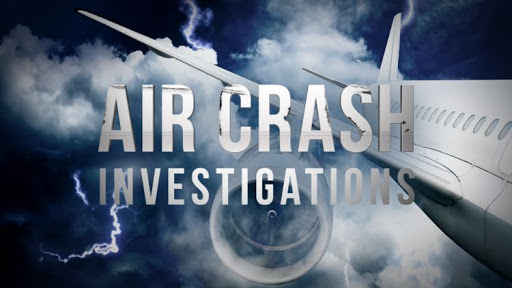
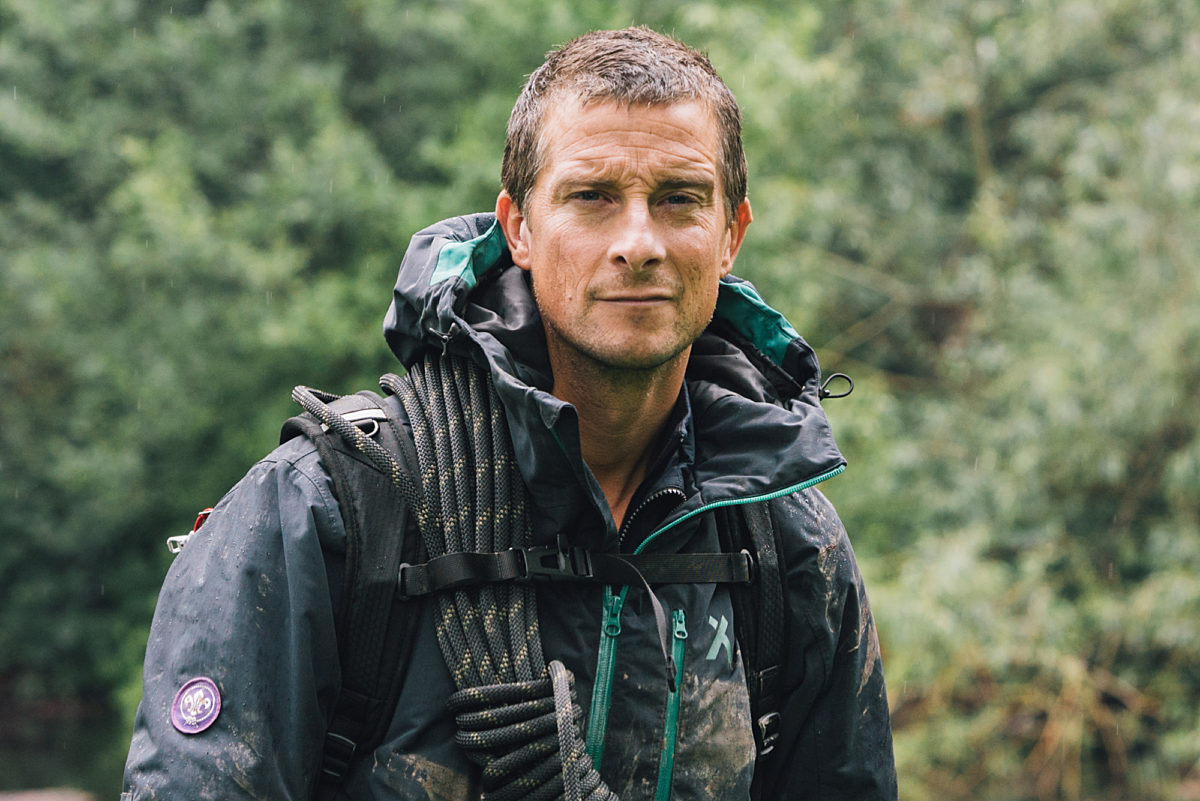
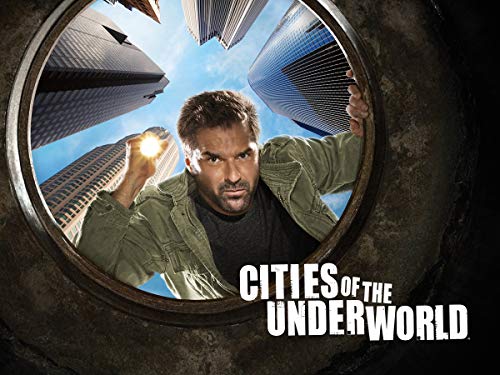


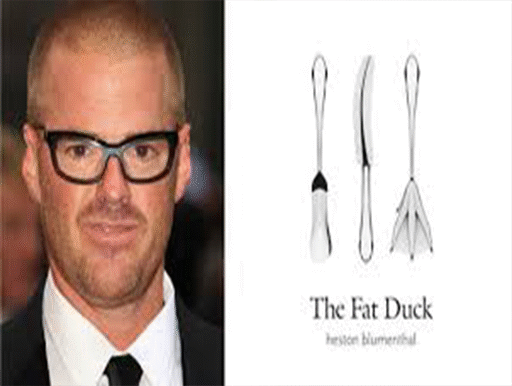

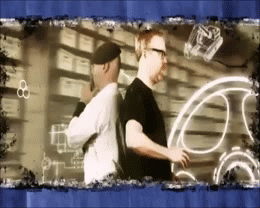



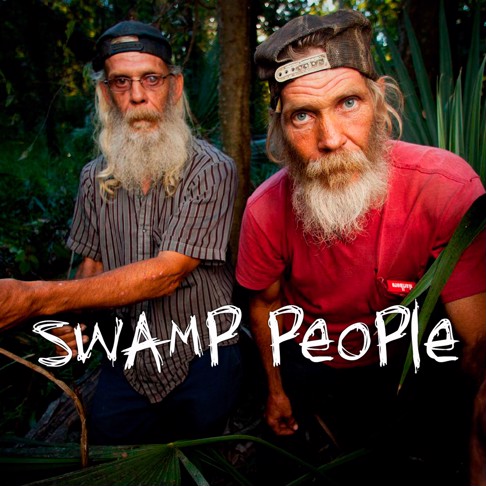
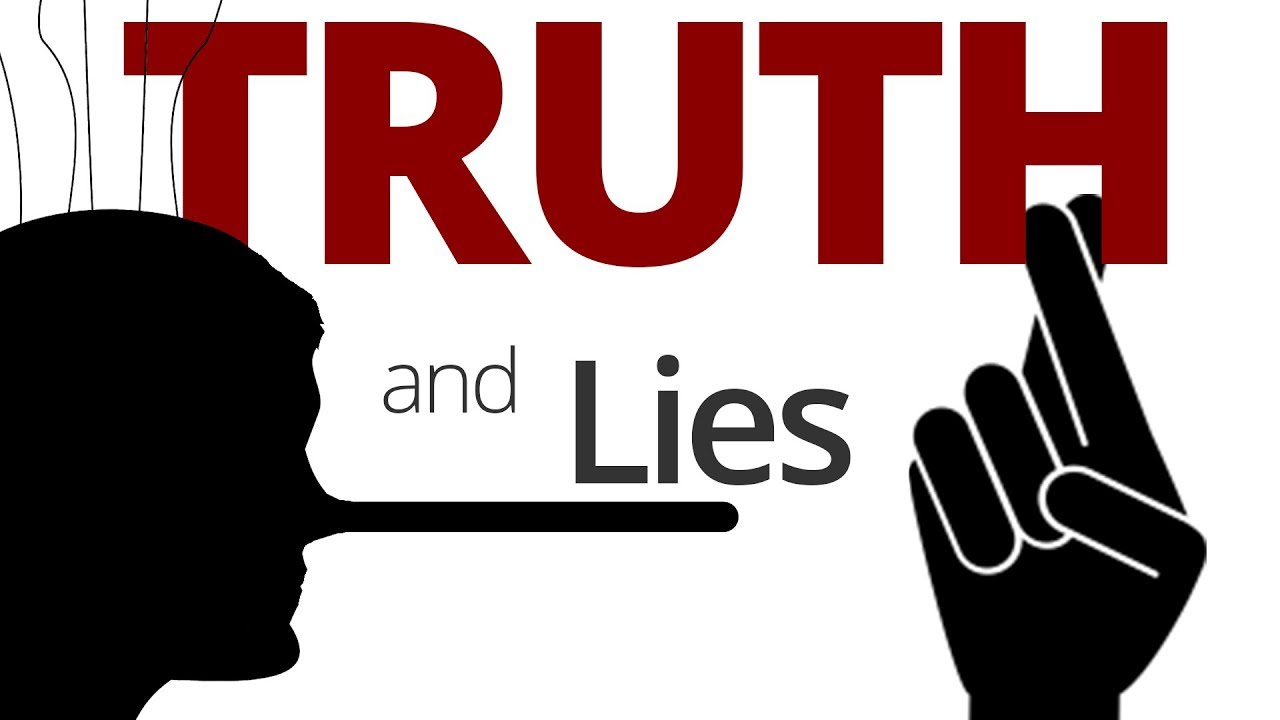
 Eagle Designs © 2012 - All rights reserved™
Eagle Designs © 2012 - All rights reserved™